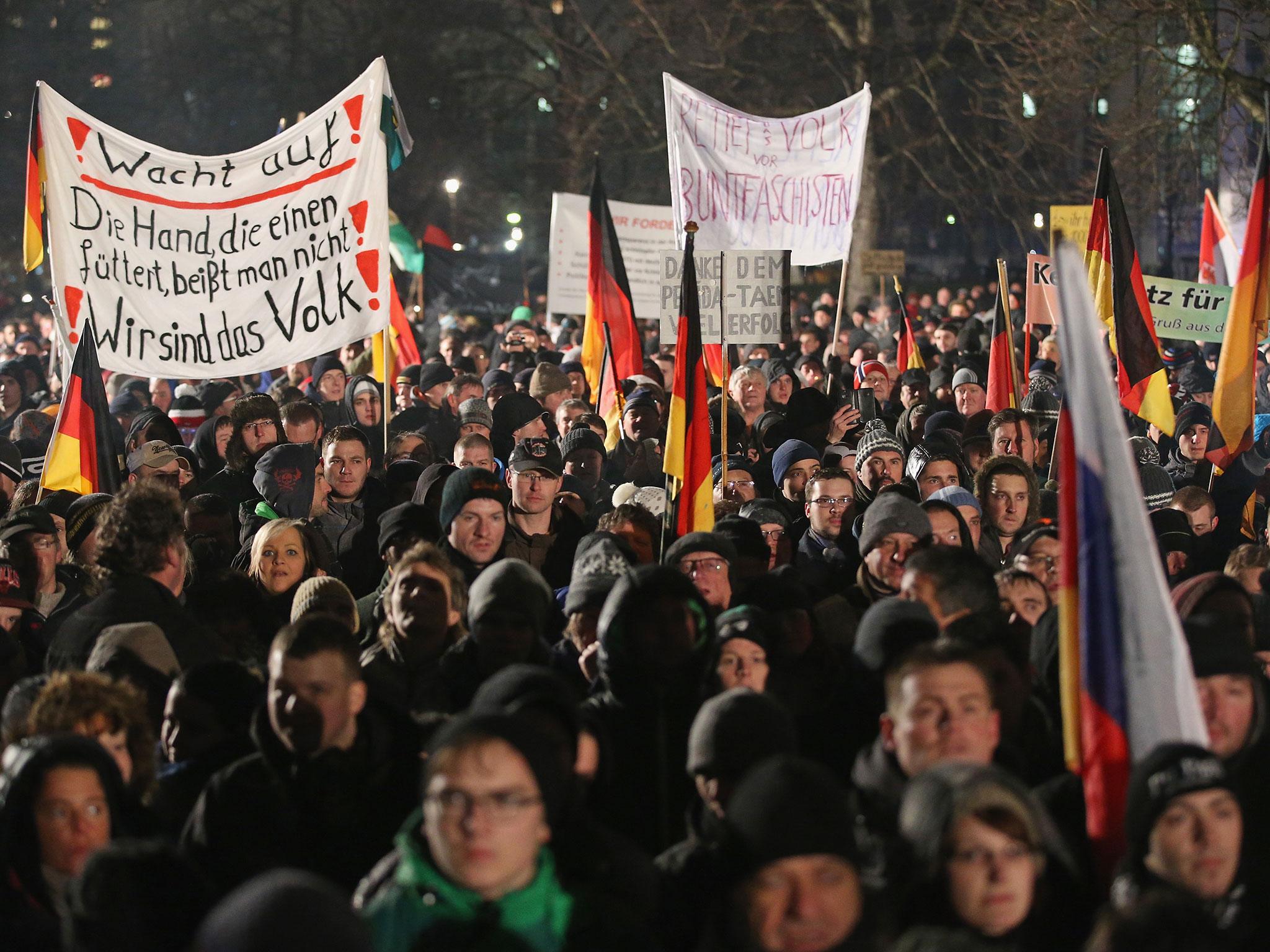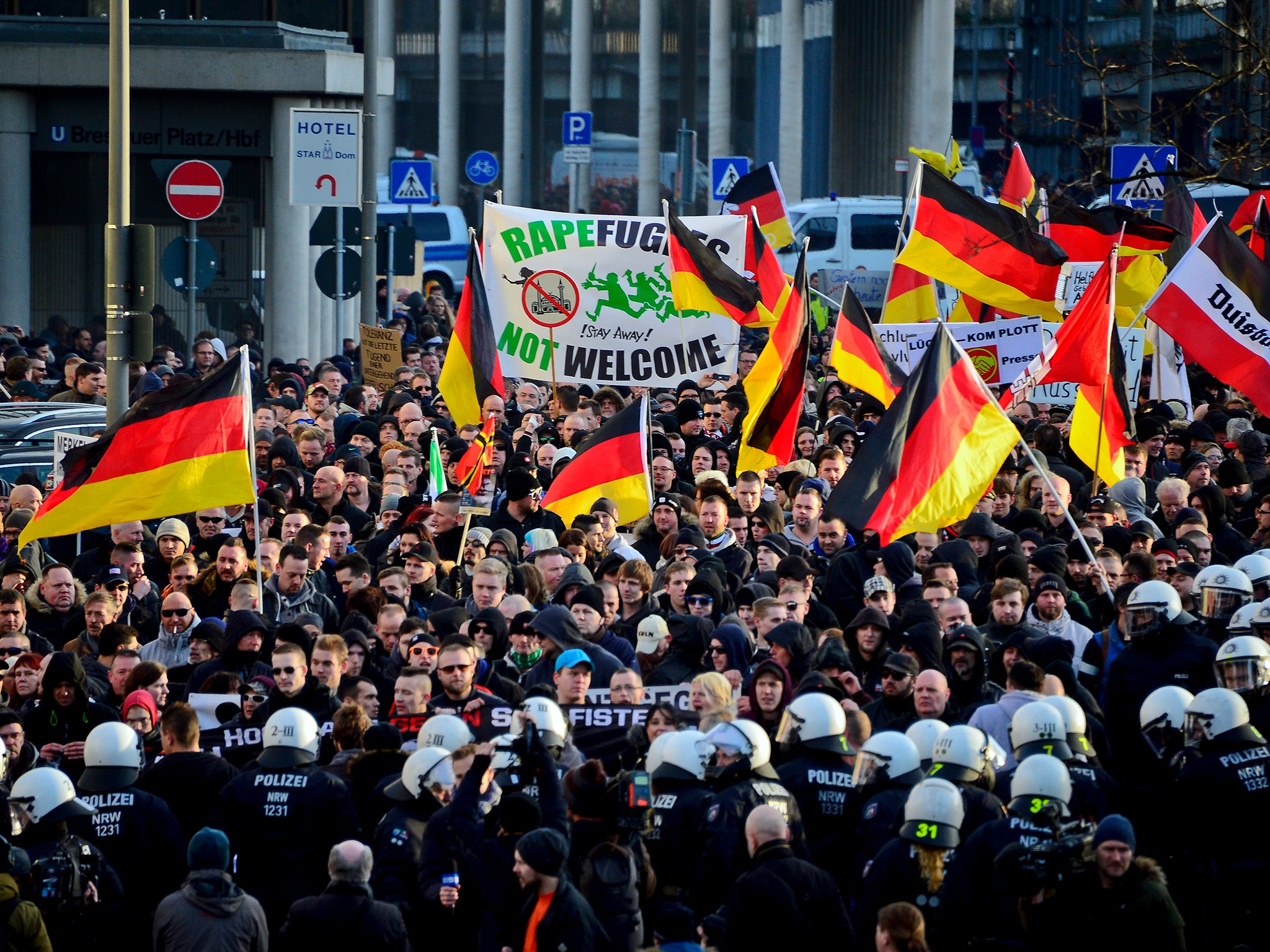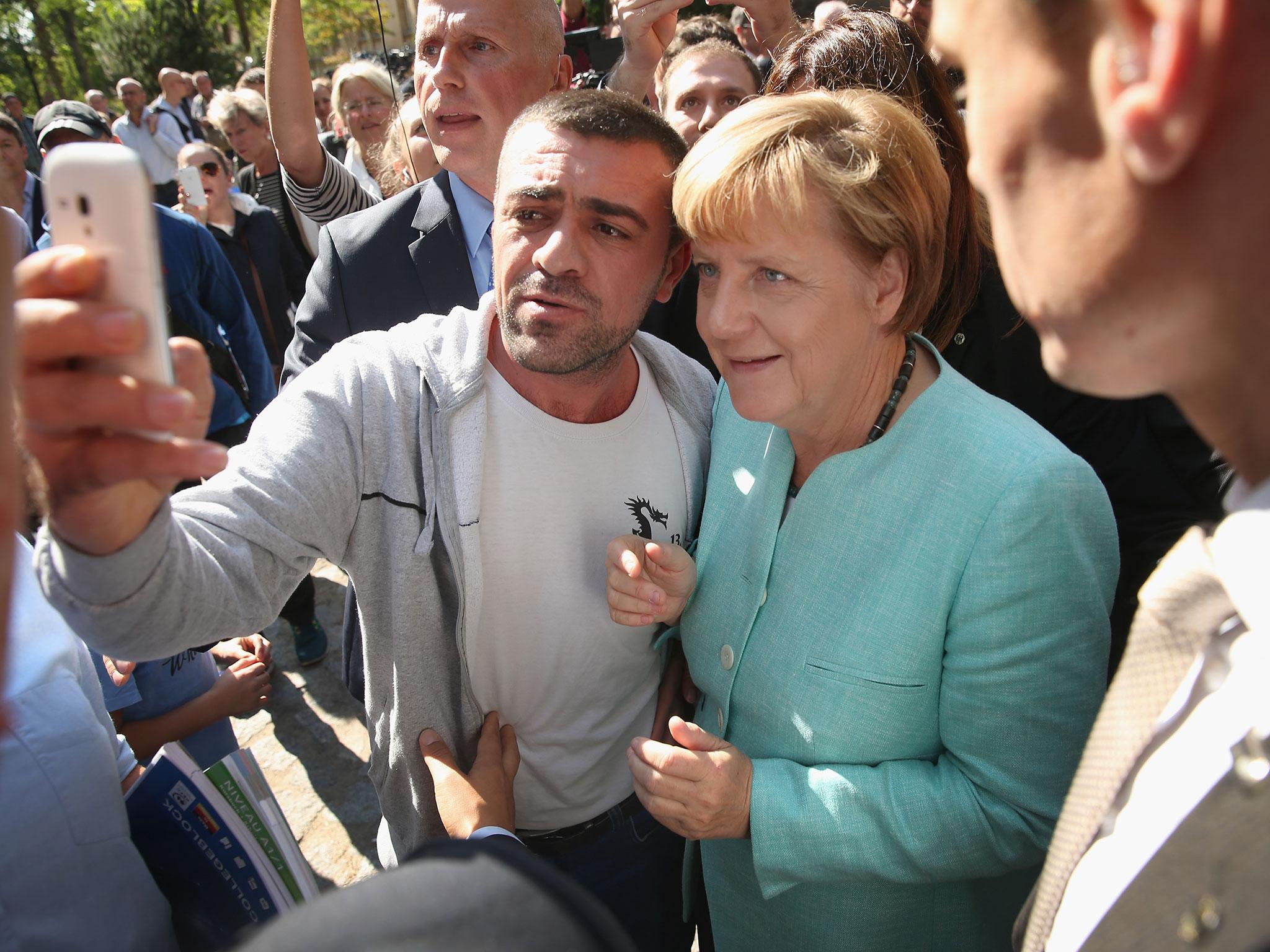Nazi language becoming increasingly common in Germany's discussion of refugee crisis, researchers say
Rise in use of Nazi phrases comes amid unprecended growth in number of attacks on asylum seekers and refugee accommodation

Following the conclusion of World War II, Germany embarked on an initiative to rid their society, culture and politics of any remains of Adolf Hitler's Nazi ideology.
However, researchers have said words belonging to the years of the Third Reich are increasingly being used by German politicians and members of the public to criticise their government's response to the refugee crisis.
The increase in the use of Nazi terminology comes amid an unprecedented rise in the number of attacks on asylum seekers and refugee accommodation.
Attacks on asylum seekers' accommodation increased more than fivefold from 2014 to 2015, according to national crime statistics released by interior minister Thomas de Maiziere.
Crimes targeting the homes of asylum-seekers also swelled, quadrupling to 1,031, including four attempted murders, eight explosives offences, 60 assaults and 94 arsons.
The authorities also recorded crimes of vandalism, such as the spraying of swastikas and neo-Nazi slogans on refugee accommodation.
Previously taboo words which echo the ideas of racial purity held by the Nazis have begun to reemerge in German political discourse, and have been turned towards refugees and asylum seekers in particular.

Researchers have seen an increased use of Nazi terminology by politicians and members of the public, Josefin Graef, final year doctoral researcher at the Institute for German Studies at the University of Birmingham, told The Independent.
She cited the example of the chairwoman of the Alternative For Germany (AFD) party, Frauke Petry, using the word "Völkisch" ("ethnic"), which was used by the Nazis to describe those they saw as belonging to the superior German race.
Ms Petry said the term should not be seen in a purely negative sense and should instead carry positive connotations because it is linked to the world "Volk" ("people"), hinting she did not want the term to be seen as the equivalent as "racist".
Her claim was met by outrage by other parties and the media, who argued the term was key to Nazi ideology and stands for a policy of exclusion towards those perceived as "non-German" - in this instance refugees and asylum seekers.

The term "Volksverrater" ("Traitor of the people") is increasingly heard during anti-refugee protests such as those held by the anti-Islam Pegida movement, Ms Graef added.
The phrase has been used to denounce Angela Merkel and ministers from her Christian Democratic Union for allowing 890,000 asylum-seekers to settle in Germany over the last year.
Pegida have also referred to the media as "Lügenpresse" ("lying press"), a disparaging term used by Adolf Hitler to discount negative reports in the media. The expression was also used by supporters of Donald Trump to attack the media in America during his campaign to become president of the United States.
The use of Nazi terminology can also be seen as a response to political differences between the main German parties in recent years, Ms Graef said.

Many were critical of Angela Merkel's "we can do it" slogan in response to the refugee crisis, questioning the government about how many refugees it intended to accept and how they would be integrated within German society.
More than 20,000 refugees have arrived in Germany so far this year.
As such, many see the refugee crisis as an opportunity to challenge the political status quo in Germany ahead of the next general election in 2017. "Provocation is easily achieved with the use of Nazi terminology," Ms Graef said.
Doctor Alim Baluch, a teaching fellow in German Politics and Society at Bath University, told The Independent that many Germans are unaware they are using sayings belonging to Germany's Nazi past.
He said words such as "Abartig" (which approximately translates to "abnormal and disgusting") and the prefix Volks- are a throwback to the time of the Third Reich.
Dr Baluch cited two particular examples of the use of Nazi terminology, which he described as "imbued with pseudo-biological concepts which imply a scientific rationale for treating people differently based on their race or physical appearance".
In the first, Bettina Kudla, MP for Ms Merkel's CDU, used the phrase "Umvolkung" when criticising Germany's immigration policy on Twitter, a term referring to Hitler's idea of ethnic cleansing. Ms Kudla was using the term to suggest ethnic Germans were being ethnically cleansed by immigrants, Dr Baluch said. She later deleted the tweet.
In another, Björn Höcke, the Alternative for Germany (AfD) chairman for the state of Thuringia, claimed Africans had a "fundamentally different type of reproduction" in contrast to Europeans. Dr Baluch said Mr Höcke had used terms typically assigned by biologists to different species in order to suggest Africans have a higher birth rate compared to Europeans.
Similar rhetoric and attitudes can be found across Europe, Dr Baluch and Ms Graef added, and are becoming part of the political mainstream in France, Austria, Denmark, Hungary, the Czech Republic and Slovakia.
Join our commenting forum
Join thought-provoking conversations, follow other Independent readers and see their replies
Comments